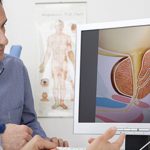
As waters warm across the United States and hurricanes and flooding season begins, the odds of being infected by flesh-eating bacteria are also rising, U.S. health officials warn. According to a Sept. 1 health alert from the U.S. Centers for Disease Control and Prevention, a dozen types of the bacteria called Vibrio cause an estimated 80,000 such illnesses each year. One particular type of bacteria, Vibrio vulnificus, can cause life-threatening “flesh eating” infections. About 150 to 200 of these infections are reported each year and about one in five of those infected die; sometimes within a day or two after becoming ill, the CDC noted in a news release. Vibrio bacteria thrive in warmer water, especially during the summer months and when hurricanes hit. In the United States, infections have been mostly seen in Gulf Coast states. Not surprisingly, infections in the Eastern United States have increased eightfold from 1988 to 2018 and moved up the coast by about 30 miles per year. Connecticut, New York and North Carolina have now seen severe and fatal infections. Most people get infected by eating raw or undercooked shellfish, particularly oysters, the CDC warns. Some people, however, are infected when an open wound is exposed to the bacteria. Open wounds include those from recent surgeries, piercings, tattoos and other cuts or scrapes. Coastal floods, hurricanes and storm surges… read on > read on >
























-300x200.jpg)













